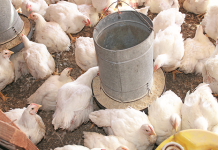One-third of all food produced globally is never eaten, according to a recent report by the World Resources Institute. Food wastage annually amounted to about US$940 billion (R13 trillion) globally, and contributed 8% of all greenhouse gas emissions.
According to the report, food currently lost and wasted in Africa could potentially feed 300 million people. In sub-Saharan Africa alone, post-harvest losses amounted to about US$4 billion (R55 billion) per year.
READ MORE: Food wastage in SA: the shameful facts
Given the magnitude of food loss and waste worldwide, the report urged nations, cities and businesses in the food supply chain to commit to reducing these figures. A new report, ‘SDG Target 12,3 on Food Loss and Waste: 2016 Progress Report’, was recently released on behalf of Champions 12,3, an international coalition of leaders dedicated to the reduction of food waste.
One of the initiatives commended in the report was the Rockefeller Foundation’s YieldWise, a US$130 million (R1,7 billion) investment programme aimed at implementating practical measures to reduce food loss and waste in Africa by half, by 2030.
READ MORE: Farmers throw away ‘good’ food – Food Bank
However, far more needed to be done. Every country, major city and company involved in the food supply chain must address food loss and waste reduction targets as a priority, Jillian Holzer, communications manager at the World Resources Institute’s Food Program, said in a statement.
Governments and companies had to quantify and report on food loss and waste, and scale up policies and practices, she said.











